Journalism: The ‘Faces’ of New York
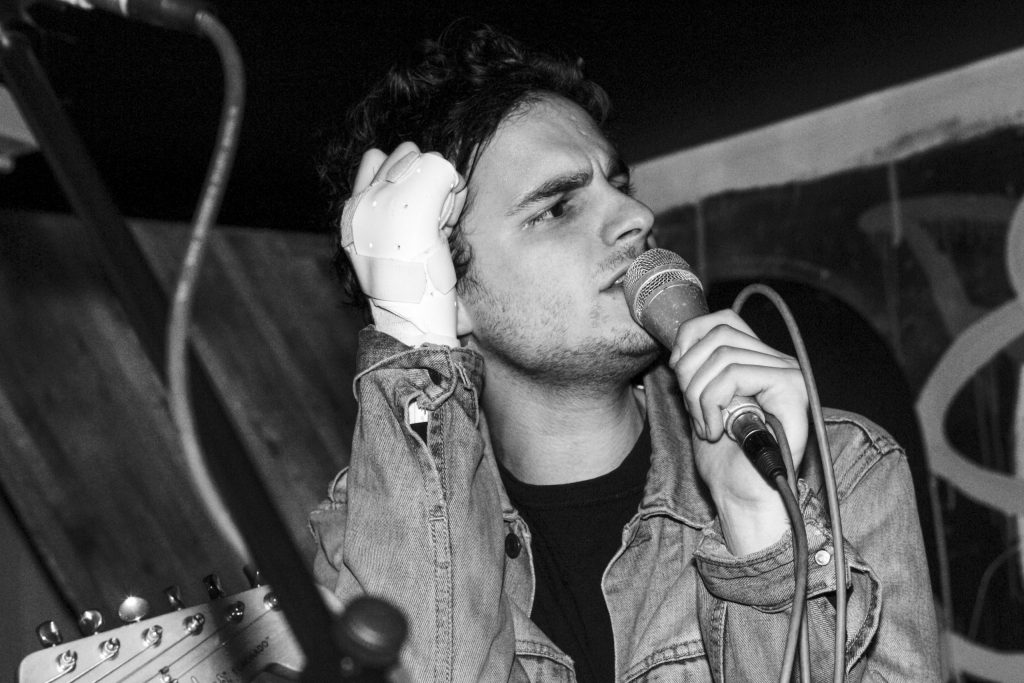

“Let’s run one more song and then we’ll be done,” Kegan Zema told his band, Journalism, during their sound check last Friday night. The Brooklyn-based five-piece was preparing for their album release party at The Silent Barn, a small DIY venue in Bushwick. Zema, garbed in black jeans and a denim button-down that half-concealed a brace on his right hand, zipped back and forth between stage and soundboard, making sure the mix captured all the noise and nuance of the group’s lush post-punk.
While Zema fiddled at the board, the band launched into the title track from the new record, Faces. The song is one of Journalism’s finest, and its lustrous guitar textures and propulsive drumbeat are exemplar of their sound. When Zema was satisfied with the mix, he, drummer Brendan Mehan, and guitarist Mike Greene all joined me in Gravesend—the Barn’s resident recording studio—to talk the daily grind of negotiating the crowded New York music scene. The most impressionable feature of that scene, it seems, has been all the recurring “faces” that have popped up along the way.

You describe your music as bro-fi space pasta.
B. We should change that.
K. No way, it’s good!
What does it mean?
K. Bro-fi is instead of lo-fi because it represents the bond of us hanging out. And space pasta because we’re noodling but with reverb. That was Owen, the ex-bassist’s description. That was where the etymology came from. I also really like pasta.
M. That’s one of the last surviving relics of the early Journalism days.
K. Totally, you found it (laughs).
M. That was there when there were like 30 likes on the Facebook page.
K. It should also be noted that bro is not an inherently male term because Dara Hirsch was in the band for most of the time that it was classified as bro-fi…Right now we kind of have a revolving door and now our buddy Sean is playing guitar since I broke my hand. We’ve got a lot of personnel, but that’s kind of what’s nice about it; the songs exist and different arrangements of people make them come to life.
That sort of fits the theme of the album. You described the new album as a “recurring cast of characters” in New York, and bringing people into the band to play seems befitting of that theme.
M. I feel like one thing with the “faces” concept is that we are faces in the mix, just as everybody else that we’re seeing. All these characters kind of come up in the lyrics. Of course a lot of them are written from the first-person perspective, but it’s a two-way thing. We’re out, around, and involved, so I’m sure there are other people with the same perspective.

K. For sure, certainly some of the lyrical content came out of conversations I had late-night hanging out with people in the music scene, and the shit that you talk about, like it being a struggle or it not being a struggle. So yeah it’s just as much about us and our experience as it is this collective experience.
I read something where you talked about… Now that music, in large part thanks to the internet, has proliferated into very specific niches. It’s much easier now to be a band, put yourself out there and have a decent amount of people follow you, but it’s much more difficult to transcend that area. It feels like there are a lot of bands in New York that are on the verge of “making it.” How do you feel about where you are as a band and where you’ve gotten up to this point?
M: I think what you’re getting at is accurate. The tools are out there; you can make music, you can release music, you can do social networking. I agree that there’s a lot of noise out there. There’s a lot people making music. There’s a lot of people making good music. I think you’ve gotta be a good live band too. You’ve gotta go play live shows and win people over. Going back to Sean for a second. He saw us at a show and that’s kind of what drew him in. I feel like the people that have been most responsive to our music are the people that saw us live.

Is there a feeling of competition in the scene, or is it more of a community?
B: I think it’s both. I mean people feel competitive with each other. Like who’s getting different shows. I don’t think it’s up front though, and I think it’s pretty petty if it does come up front. Sort of a feeling you would have to suppress. Because at the end of the day there’s no reason to feel competitive with another band. Everyone’s happy for each other when good shit happens.
K: Yeah I think it is kind of both. In ideal situations, what’s good for one band will be good for others… People will get raised up and have a little scene or subset or a little group, and there are lot of people that are in that collective, [The] Epoch, and you see a lot of those people all touring with each other and supporting each other and helping each other out… If there is any competition in any sort of way, it’s just a general byproduct of people wanting to make money off of what they do at some point, so they have to compete because capitalism. Any time you can defeat that process with togetherness..
It’s a win…
K:…and that’s a lot of what happens here at The Silent Barn, but no one is immune from it.

In an email to SPIN, piggybacking on that, you quote with a hypothetical: “Are we all just occupying our time until we give up, grow up and move on?” Do you guys have an answer to that personally speaking?
B: No, and that’s the point: the further we think about that the further we get away from finding an answer.
K: That’s the thing, we just have to ask that question every day. Mike what about you?
B: Mike’s grown up.
M: [laughs] I don’t think that’s so much what it’s about. I believe we’re doing something good and productive – not to put down Kegan’s thing here – to say that we’re occupying space is definitely one way to look at it, but we’re out. We’re doing stuff. To what end? We don’t know. But we’re doing good stuff.
K: Basically that’s the worst of your doubts. If you could voice the worst of your doubts, then that’s pretty much what you have to rail against. That kind of sets the bar for the worst possible thing; if all of my worst fears are true, this is what the situation is (laughs). But at the same time, how do you move forward from that?
M: Once you come to that place, how do you not think about it?
K: For further reading, see: Bruce Springsteen.

I think that existential dread of ‘what are we doing’, and the idea of that being a low spot… I mean obviously there are so many good thing about making music for the sake of making music. I was doing an interview the other day and we were talking about feeling nostalgic for pre-internet days because now the existential dread is magnified every day by seeing what people think online. It seems like this album in some ways is trying to come to terms with the reality that that’s kind of the world we live in now.
K: Humanity is in this weird honeymoon stage with how it handles social media stuff, and there’s gonna be a backpedaling away from it in what people do – [it’ll be] more like exhaustion. I feel like that definitely fueled the feelings on record, because I feel that just as much as you are out seeing faces over and over again, the stupid website is literally called Facebook; it’s the book of faces, and those are all the people that like, ‘oh you played a show with this dude’ and then you were out hanging out with him and now they’re in your Facebook feed and you get to see everything there is to see about their band and what they’re doing…That’s actually a conclusion that I just had sitting here (laughs). It’s just as much URL as IRL – I think we exist in those worlds simultaneously at this point.
This album, in a lot of ways, is influenced by the New York music scene, as a space. Has New York done anything palpably for your creativity, or your songwriting. Does it stem from anything else in New York besides the music scene?
M: I mean the music scene, being out on the street, the subway, everything from encounters with strangers to shitty cramped spaces to those times when you do catch a breath.
B: It’s also a total fuckin’ pain in the ass to do any kind of creation. Here you’ve got to go through all the motions of finding a place to put everything, finding a space, finding people to share it with because it’s expensive as fuck, finding time to use it, finding other places to record stuff. Everyone works a lot more in New York because it’s expensive… you can’t do it sort of lackadaisically. I think that’s sort of what makes some of our songs the speed that they are; it adds some of the anxiety that are in some of them.
K. Yeah it’s not like we’re playing Phish covers in our basement. We have like two hours once you’re out of work before I have to go to work because I was up until three in the morning because I work at a bar, shit like that…A lot of the things that we were saying about the way that you’re occupying your time. In the city, time is going to be your money and you have to make sacrifices across the board to be able to do it, so it’s like, is this still a worthwhile thing to do. It’s pretty much really easy to give up, all the time (laughs).
B: But at the end of the day I really enjoy it, and that’s why I committed to it.
K: Yeah and we’re all the type of people that want to do that. That’s why there are people that make music all over the world, and you can do that and commit to that here.
___
Original Photography for Frontrunner Magazine by Salvador Espinoza from Honduras @ Bowery Ballroom. Brooklyn, NY. February 25, 2016. All Rights Reserved.

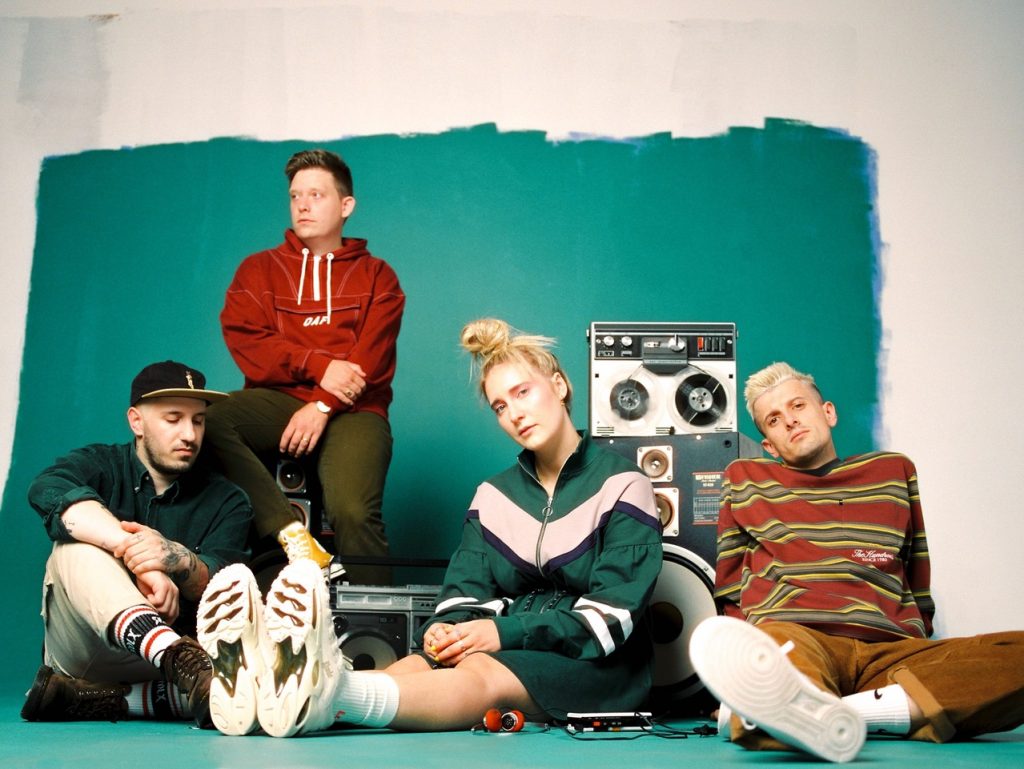
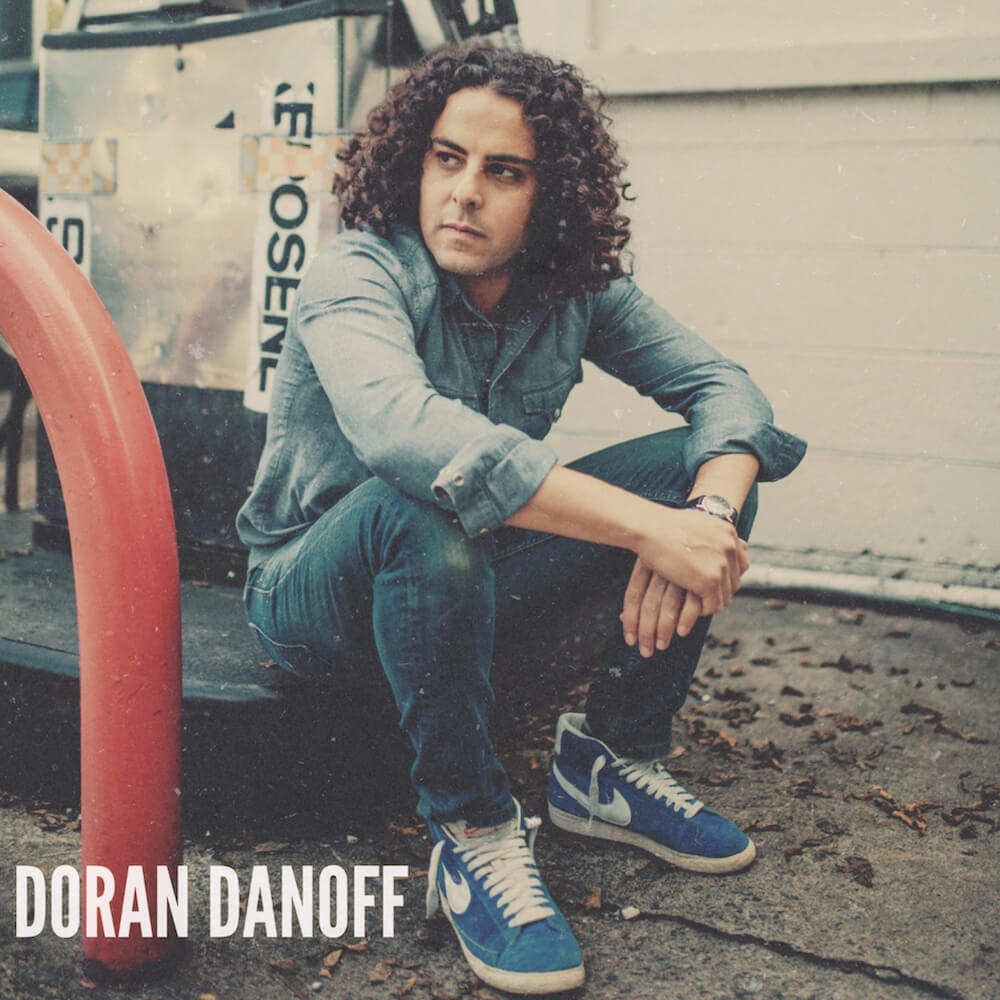
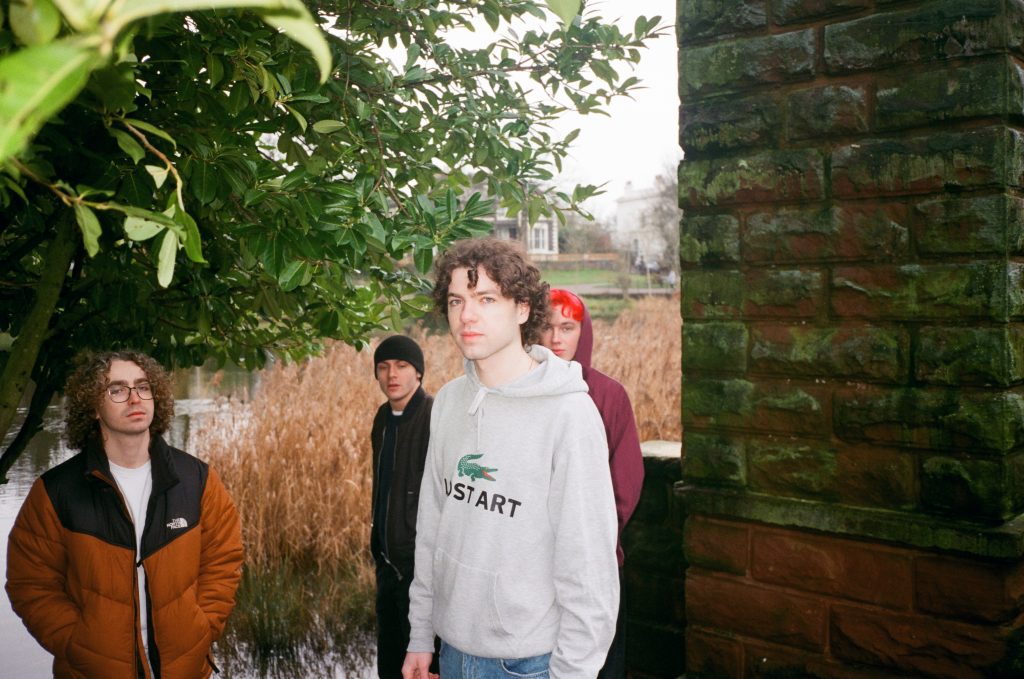
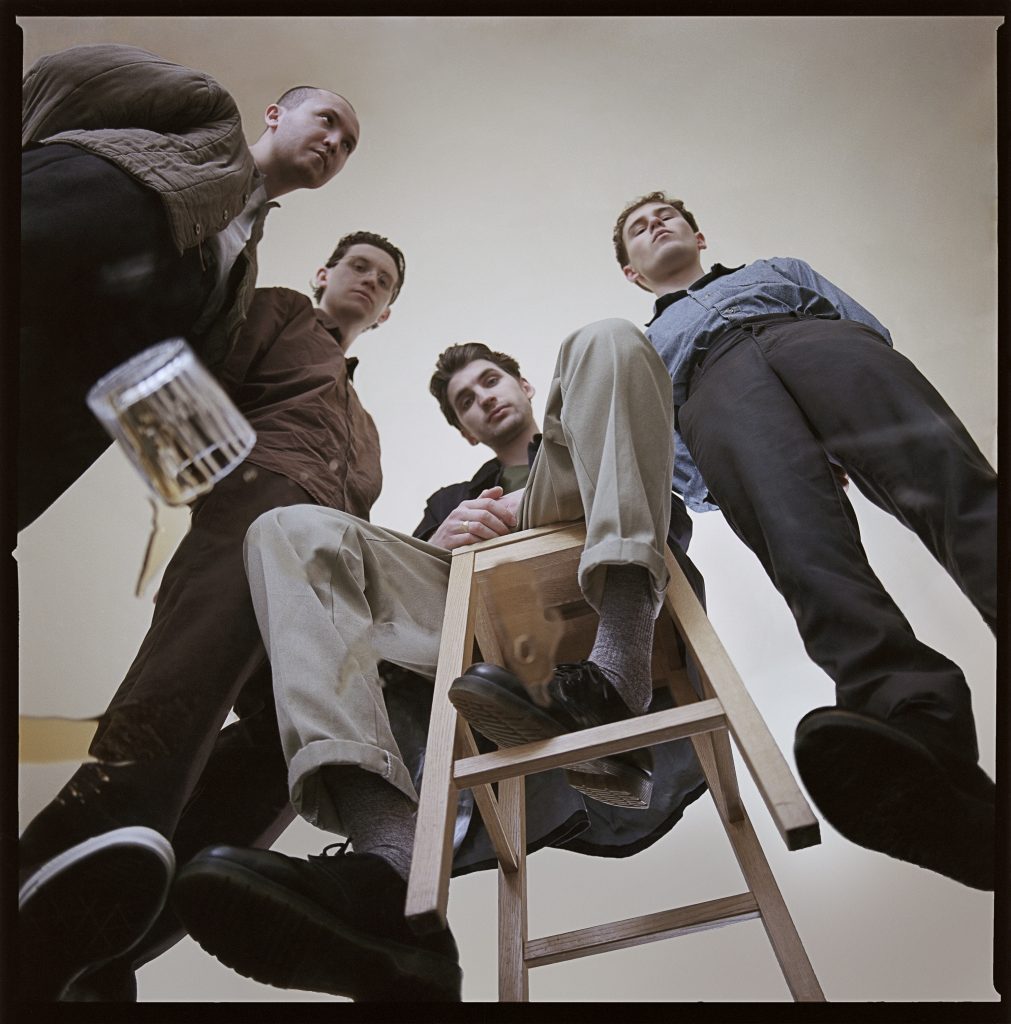
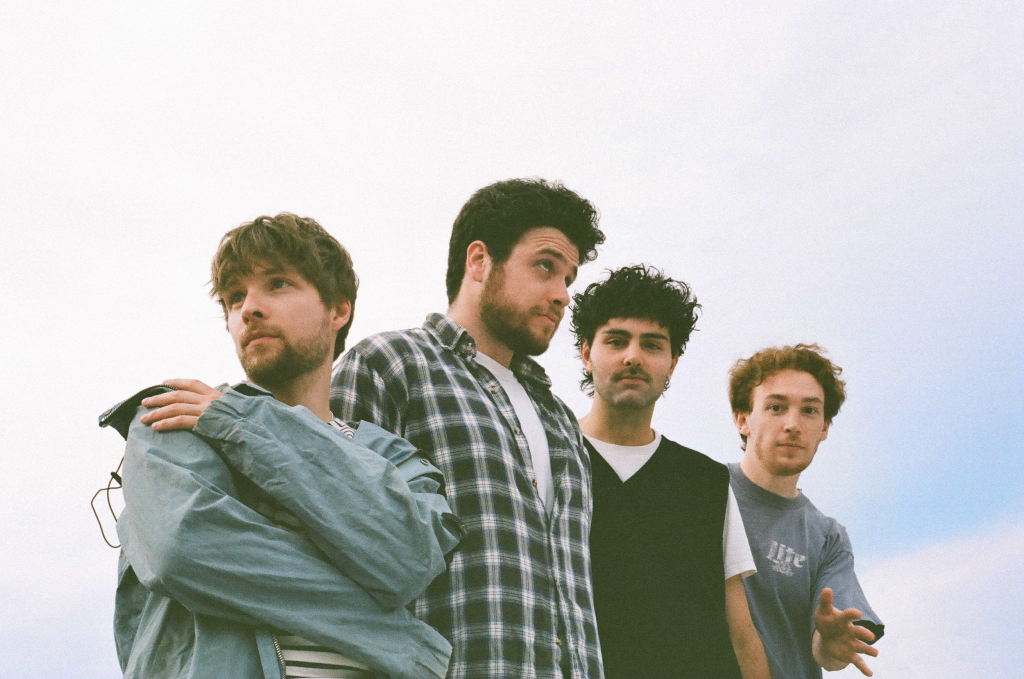
Responses